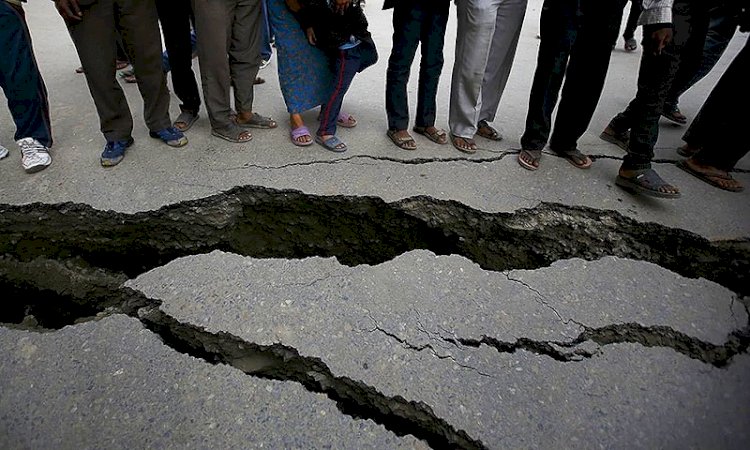Earth Tremor hits parts of Ghana

Parts of Ghana have been hit by earth tremor. This occurred a few minutes to 11:00 pm on Wednesday, June 24, 2020. The tremor was recorded in parts of the Greater Accra, Central and Eastern Regions.
Some of the affected areas were Dansoman, Lapaz, Achimota, Tesano, Santa Maria, Gbawe, Weija, Madina, Kwabenya, Nsawam, Koforidua, Swedru among others. Some residents of Osu, Ablekuma Manhean,
Kaneshie, Achimota, Adenta, Circle, Kokomlemle, Accra New Town, Legon, Kasoa, Haatso, Kwashiman, Teshie, Nungua, McCarthy Hill among others said they felt the movement. “It started at exactly 10:48 pm.
Initially, we thought because it was a rainy season, it was normal. But it happened again in a few seconds. And it happened the third time. As we speak with you a lot of families are out of their rooms trying to look for safety places,” they said in an interview.
What is an earth tremor
An earth tremor is a relatively small or short-lived movement of the earth’s surface caused by the same forces that produce earthquakes. Earth tremors are strong enough to be felt by people. Earth tremors can occur when the force exerted on the rock mass exceeds its strength.
Earth tremors recorded in Ghana
Ghana experienced two earth tremors in 2019 and one in 2018. These tremors were recorded mostly in Accra, the capital. Some of the areas that experienced the tremors at the time included: Gbawe, Sowutuom, Old Kasoa Barrier, New
Bortianor, Awoshie, Abelemkpe, Tabora, Achimota, Ablekuma, Kissiman, Westland, Laterbiokorshie, Legon and McCarthy Hill. Some said they felt their buildings and rooms vigorously shake during the tremor which some report came with loud thunder.
Earthquakes in Ghana
Ghana is said to be an earthquake-prone country. There are records that an earthquake in 1636 in Ghana caused havoc in several parts of Axim. Another one was also recorded in Accra in 1862.
The Director-General of the Ghana Standards Authority (GSA), Prof. Alex Dodoo in an article published in the November 16, 2013 edition of the Spectator newspaper titled: “Can Ghana sustain health after a major natural disaster?” stated that:
“In 1906, an earthquake destroyed several buildings in Ho and its environs but fatalities were few. The most serious earthquake recorded in Ghana was the June 1939 earthquake that destroyed most of James Town, Accra, killing nearly 150 people and causing massive economic loss.”
“Indeed, if this same earth had occurred today, the loss of life would be catastrophic and the economic losses would be such that the earthquake could be charged with “causing financial loss to the state” if the earthquake were a person and not an act of God,” Prof. Dodoo wrote in the piece.







